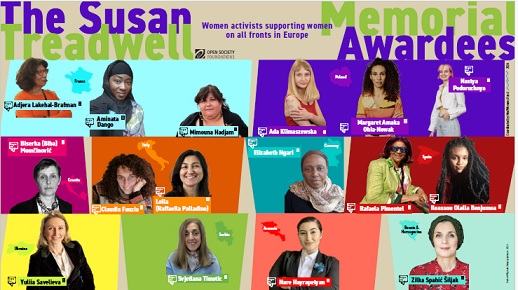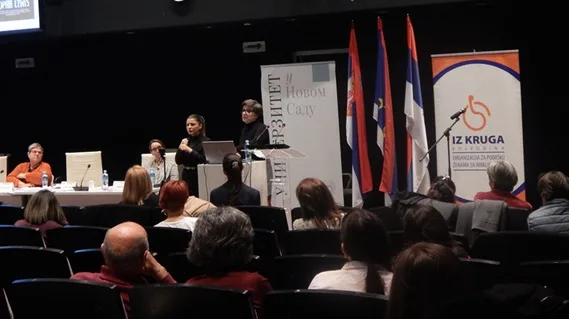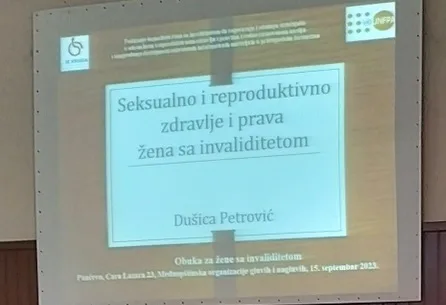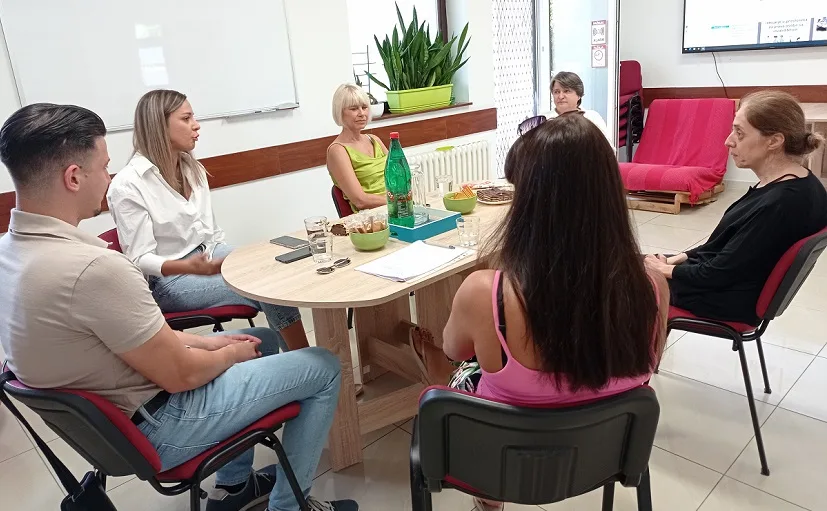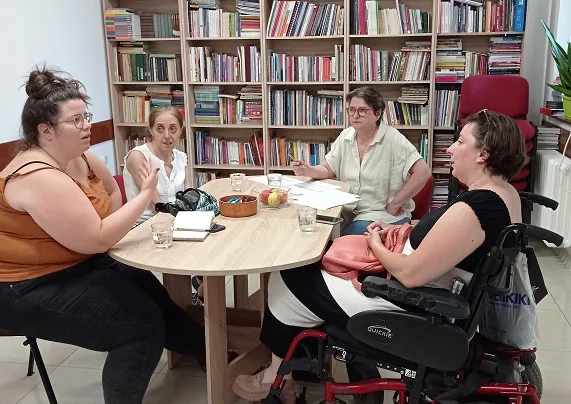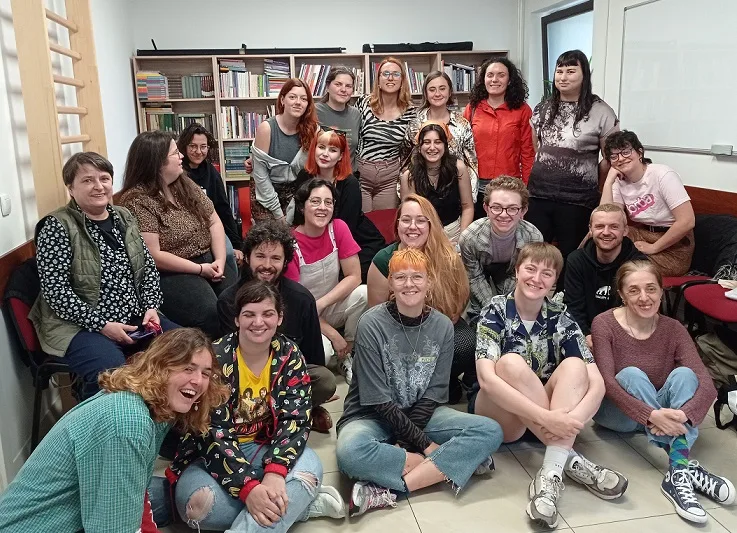A book by Marija Vrebalov Djordjevic, The Light of Darkness, is a recommendation to all facing incipient limitations of their bodies and souls after a bad traffic accident in the process of ascertaining their freedom and strength. In other words, it may be receptive to anyone going through difficult hardships and reevaluating life and core life values.
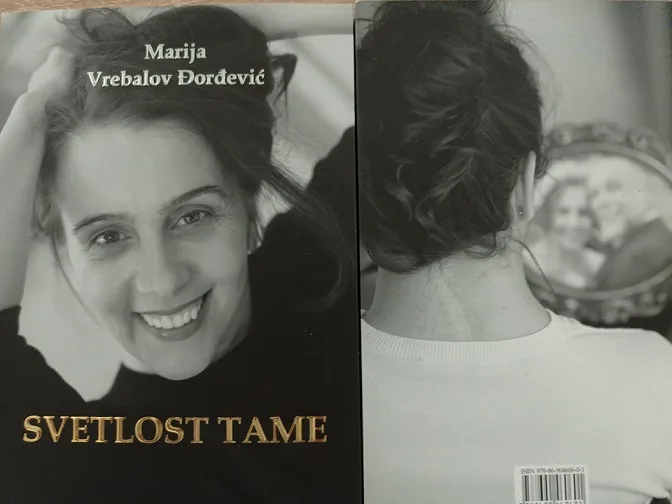
The essence of the book The Light of Darkness is at the very beginning: I lived intensively, always wanting something more, a bit more, different, more passionate, more smiling, enhanced, more often, I always wanted something. How magnificent it is to look at oneself and realize that the very thing happening now is the best. Anything life brings is neither less nor more than needed for ultimate happiness. Peace. Tranquility. Joy. Everything.
At the beginning of her diary and autobiographical narration, Marija Vrebalov Djordjevic writes about her move from Novi Sad to Sombor with her husband: -I made no decisions; I just let someone else decide where it is better for us. Towards the end of the book, in a chapter dubbed There is Choice, Marija emphasizes that everyone has a choice in absolutely every life situation, a potential to pick a more suitable option and do their best. What made such a radical change in Marija’s point of view? The answer is in four words: a bad traffic accident.
After the unfortunate night between April 27 and 28 and the rollover accident near the village Okvir in the vicinity of Sombor, after being clinically dead twice, followed by reanimation in Novi Sad Marija envisages:
I am not free to breathe on my own, to talk. I am not free to drink water or eat. I cannot cry. I am not free to tell how I feel. I am not free to pee. I don’t feel like lying on my back; I am not free to choose another position. No, I am not free to go alone, walk shortly away, catch a breath, or close my eyes to the morning sunshine. When they bring my daughter, I won’t be able to hold her as I’d like to, as long as I’d love to or when I’d want to.
One can only grasp the vastness of the tragedy in the last sentence if keeping in mind that the lines about motherhood might be the most sensitive parts of Marija’s book and the warmest part of her life story was before the traffic accident. In these intricate times, when we all name various unfreedoms, Marija reminds us of simple things – roses from her father’s garden, homegrown tomatoes, homemade bacon, and spring water. She is leading us back towards the things we tend to forget, don’t mind, or, in other words, don’t think about. We are free (at least most of us) to do a plethora of things. We can breathe, talk, drink, eat, take the position we like, move, and spend time with the people we love most when, how, and how long we want. That is the secret. We are not aware of how little is needed to be happy.
Marija admits: – The freedom I never thought about but am fully aware of now opened new ways. I am learning to be at peace and free despite all the limitations. The road with no exit because it is life itself.
How is she learning that? Gradually. Lots of ups and downs. With joy and pain, both physical and mental.
After the accident, Marija was given a 0.01% chance of survival. But Marija had people who loved her. She had a sister Saska who spent day and night by her bed in the hospital, and a sister Veka, who was born on Annunciation Day and was full of grace. Marija calmed down in her pain by remembering their childhood and the mild scratching they did to each other’s backs. Her father, who taught her that an effort pays out in the end, reminded her of one childhood memory. He wisely took her back in time when she learned to pull out an octopus from the shipwreck with two local boys on Peljesac. It was dark and terrifying in that wreck, but after some time, she stopped thinking about it and pulled the octopus out finally. Often in life, we have to overcome adversity despite our fears. Not trying to be a superheroine, this brave woman wrote and deliberated a lot about her fears, but maybe the most impressive message is the following: – When you are afraid of something, you cannot be rational. When you become aware of the fear, you can rationalize it, and it vanishes.
Through her personal story, Maria is constantly communicating messages, but often subtly and indirectly. After shocking contemplation about how it would have been better if she had died because she no longer could have a physical connection with her daughter, which led to emotional disconnection, Marija concluded: – I am not merely my body. I am my soul too. She continues to ponder about things she cannot do for her little one but can do for herself, she states: – It’s a challenge. I will be happy when they bring her to me. When they take her away, I won’t be miserable; I will be pleased because I’ve seen her. Because I know I will see her again. I am doing exercises. I am breathing. I can do that. I will be content with the things I can do.
We should live in the present moment, give it as much as we can and be satisfied with what we have and can do. An empowered spirit means accepting oneself and our faults; self-acceptance means understanding oneself, regardless of how some objective parameters see us. That is why Marija says: – I am learning to love my body, even when it misbehaves. Diagnosis, results of various biochemical analyses, and X-rays are all very significant, but most important is what I think about them.
Marija Vrebalov Djordjevic’s account, The Light of Darkness, is a pursuit of the meaning of life destroyed after a bad traffic accident. Putting back the debris into a new wholeness takes place in 25 parts, some divided into short chapters with distinctive titles: Love, Kindness, Acceptance Saved Us, Road to Happiness, and What are the Places of Happiness? Some chapters have a motto. For example, a chapter where Marija writes about the horrors of the reanimation room has a motto – Love will cure us. She often finishes and makes a point with the motto. All of the above, along with the short sentences packed with emotions, lures us to read and facilitates it. There is more. Photographs are the specific curiosity of this book that reflects the mood and state in each chapter: sadness, wonder, happiness, determination... Those photos in the book wouldn’t be what they are if the author herself, Marija Vrebalov Djordjevic, hadn’t been on them.
